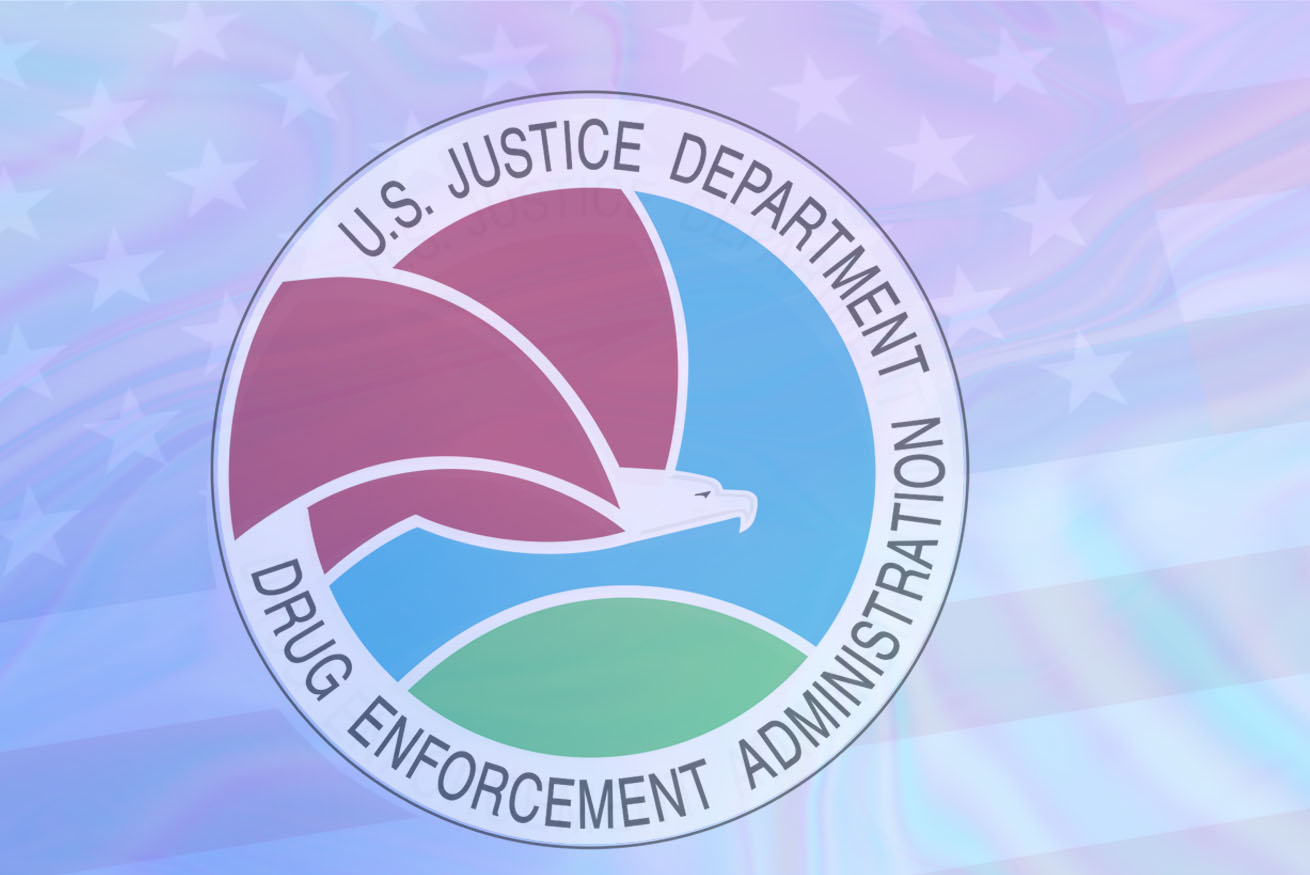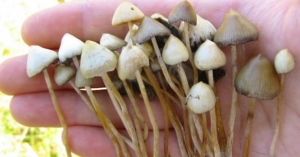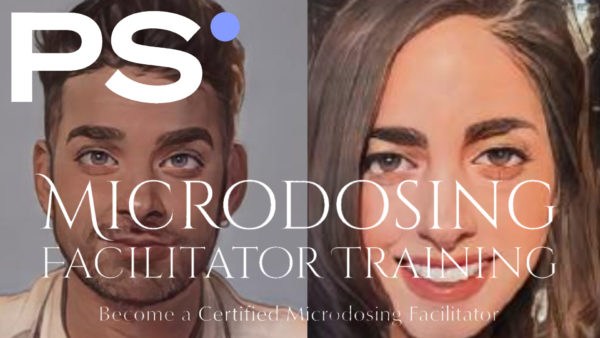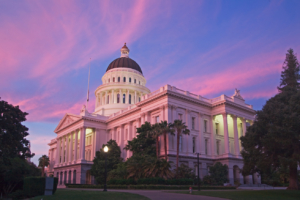
In a blow to the progressive psychedelics movement, the U.S. Drug Enforcement Agency (DEA) has proposed adding five more hallucinogenic compounds in schedule I of the Controlled Substances Act.
The regulator announced its intent last Friday to criminalize 4-Hydroxy-N,N-diisopropyltryptamine (4-OH-DiPT), 5-Methoxy-alphamethyltryptamine (5-MeO-AMT), N-Isopropyl-5-Methoxy-N-Methyltryptamine (5-MeO-MiPT), N,N-Diethyl-5-methoxytryptamine (5-MeO-DET), and N,N-Diisopropyltryptamine (DiPT) not just for possession, distribution, import, export or manufacturing, but even research, instructional activities and chemical analysis.
These lesser-known psychedelic compounds will join psilocybin, LSD, DMT, mescaline, and MDMA as illegal substances if the proposal becomes law. The DEA has been monitoring and investigating these tryptamines for at least two decades. In 2008, the agency sent data to the Department of Health and Human Services (HHS) for medical and scientific review, and received reports on each substance in 2012 — long before the psychedelic research renaissance was being taken seriously by the mass media, the pharmaceutical industry, and policymakers.
A 28-page DEA report, authored in August of 2021, states, “These five tryptamines have no known medical use in the United States and are not marketed internationally as approved drug products. They have all been reported as drugs of abuse in the U.S. by law enforcement authorities and identified in seizures.”
The document concludes that these five tryptamines meet requirements for schedule 1 classification because of the following three factors: The drug has a high potential for abuse, the drug has no currently accepted medical use in treatment in the United States, and there is a lack of accepted safety for use of the drug under medical supervision.
But there is a glimmer of hope: Anyone can visit the Federal Register to comment on the proposal until February 14.
Washington State-based biotech company Panacea Plant Sciences appears to be the first voice in the burgeoning psychedelics industry to speak up, although more will likely follow, as there is now major economic interest in the research of psychedelic compounds to create next-generation medicines to heal a bevy of mental health conditions, including depression, anxiety, addiction, and PTSD. And that’s really just the tip of the iceberg of potential.
“At the moment hallucinogens/psychedelics are having a revival for their use as medical treatments,” CEO David Heldreth writes in six-page oppositional response. “This is due to the apparent connection between 5-ht2a agonism and the ability to provide long term relief from and treatment of depression, anxiety, addiction, PTSD and other mental health conditions. 5ht2a receptor agonism has been identified as a primary mechanism of medical benefit.”
“As such it is intriguing to see the DEA document in the docket which is entitled Five Tryptamines Eight-factor Analysis DEA 082021 where one can see the 5ht2a activity and binding levels used as reasons to make these compounds illegal,” the letter continues. “This same activity is precisely why these compounds do, in fact, have medical uses.”
Although the DEA cites danger of abuse because of occasional deaths or emergency room visits linked to the compounds, Heldreth questions the validity of the correlation. “Deaths attributed to these compounds have only occurred with comorbid use of psychiatric medications along with alcohol and the identified tryptamines. As such it is likely that these deaths have very little to do with the tryptamines alone and are either directly due to the use of alcohol and psychiatric medications which present a known danger or from the combination of those items with the drugs.”
He adds, “The attributed risk and dangers are overblown by DEA analysis. Further the risks named, science cited and data used for this process started in 2008 and much of the cited info is outdated.”
Furthermore, Heldreth points out that rescheduling of these substances would be a hypocritical move in wake of all of the promising research that has been conducted in the last 20 years — research that the agency has supported, and even increased production quotas of psychedelic drugs to further that research.
“5ht2a agonists, including the compounds listed here, have now been established to definitely have medical benefit,” he writes. “The same DEA, FDA and NIH are currently allowing and hosting/funding medical trials which have already shown medical benefits of using LSD, mescaline, DMT and psilocybin.”
Panacea has requested a public hearing on these issues and the scheduling. Psychedelic Spotlight will continue to monitor and cover developments relating to this proposal.





